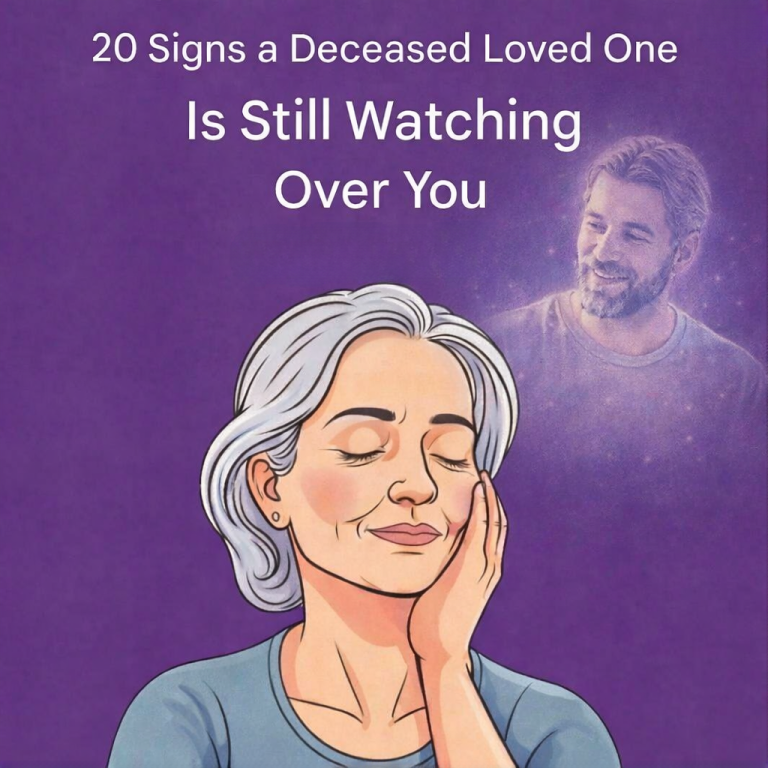
From the day our son, Jason, was born, my husband and I believed he was destined for something special. He was the kind of child who made everything look easy—straight A’s, debate team captain, piano recitals, science fairs. When other kids struggled to keep up, Jason seemed to glide through life with quiet confidence and an effortless charm that made teachers adore him and classmates look up to him.
We were proud. Maybe too proud.
When he got accepted into one of the top universities in the state—full of prestige, beautiful ivy-covered buildings, and a name that turned heads—it felt like the reward for every sacrifice we had made. My husband, Robert, worked double shifts for years, and I picked up every weekend substitute-teaching job I could find. We told ourselves it was all worth it—that someday, Jason would graduate, land a great job, and have the kind of life we could only dream of.
When he left for college, I remember standing by the car, waving as he drove away. I cried the moment he turned the corner. Robert wrapped an arm around me and said, “He’s going to make us proud, Carol.”
And for a long while, I thought he did.
At first, everything seemed normal. Jason called regularly, sometimes every other day, telling us about his professors, his new friends, and the “intense workload.” He complained about staying up late for exams and pulling all-nighters to finish research papers.
We sent him money every month—enough to cover tuition, books, and living expenses. Sometimes, a little extra when he hinted about “unexpected fees.”
“College is expensive these days,” Robert would say with a shrug. “Better he focus on his studies than worry about part-time jobs.”
I agreed. We wanted him to have the chance to focus fully on his education.
Jason emailed us copies of his “tuition statements” once or twice—PDFs with the university logo and his name. I never thought to question them. Why would I? They looked legitimate, and besides… he was our son. Our Jason.
The first hint that something was wrong came during his second year.
He stopped calling as often. When I texted him, his replies were short: Busy, Mom. Big project this week. Or Can’t talk, I’m studying for finals.
I missed him terribly, but I didn’t want to nag. College life was demanding; I told myself it was normal for him to drift a little.
Then came the holidays.
He didn’t come home for Thanksgiving—said he had a group project due. Then he missed Christmas, claiming he’d gotten a part-time campus job and couldn’t afford the trip.
Robert was disappointed but tried to stay upbeat. “He’s growing up,” he said. “Let him figure things out.”
But something in me felt uneasy. Whenever I asked Jason to video call, he always had an excuse—bad Wi-Fi, too late, or “I look terrible, Mom.”
At first I brushed it off. But unease began to gnaw at me.
By the time Jason was supposed to start his senior year, we had sent him nearly $60,000—money we’d saved over decades.
And we hadn’t seen him in over two years.
When I asked if we could visit for a weekend, he hesitated. “Uh… now’s not a good time, Mom. The campus is under construction. And my dorm’s a mess. Maybe after midterms.”
Midterms came and went. Then another excuse.
I began losing sleep. “He’s avoiding us,” I told Robert one night. “What if something’s wrong?”
Robert sighed, irritated. “Carol, he’s in college. He’s overwhelmed. You’re worrying for nothing.”
But my mother’s intuition screamed otherwise.
One afternoon, while Robert was at work, I called the university’s registrar’s office. I said I needed to confirm Jason’s enrollment for a scholarship application.
The woman asked for his student ID. I read it off one of the PDFs he’d emailed us.
She was quiet for a long moment.
“I’m sorry, ma’am,” she said gently. “There’s no student by that name or ID number in our system.”
My heart dropped. “That can’t be right,” I stammered. “He’s been enrolled there for three years.”
She checked again.
“No, ma’am. I can search past records, but no one with that name has ever been registered.”
I hung up and stared at the wall, numb. My hands trembled as I phoned Robert.
“He’s not there,” I whispered. “He’s not enrolled.”
Robert thought I misunderstood, but when he called the school himself and got the same answer, he went silent.
“We’re going down there,” he said finally. “Tomorrow.”
We drove four hours to the university. At the registrar’s office, they confirmed it: Jason had never attended. The documents he’d sent us were fabricated.
My heart physically ached. We had trusted him completely. We had sacrificed everything… and he had lied.
Robert clenched his fists. “Where is he?”
We went to the address he’d given us—an apartment complex. The manager checked her computer and shook her head. “No one by that name lives here.”
I showed her a photo. She frowned. “I’ve seen him around town, but not living here.”
That was when it hit me—we had no idea where our son was.
We spent the day searching: coffee shops, libraries, student hangouts. Nothing.
As dusk fell, I remembered the manager’s words: “around town.”
On a desperate whim, we drove toward the outskirts of the city, where cheaper housing and old trailer parks were scattered.
And that’s where we found him.
A run-down trailer park tucked behind a gas station. Rusted cars, weeds, the sound of a radio crackling somewhere…
We parked a few feet away and approached a pale blue trailer with sagging steps and peeling paint. A single light glowed faintly inside.
Robert knocked.
For a moment, nothing happened. Then the blinds shifted—just a flicker—and the door opened a crack.
Jason stood there.
But he didn’t look like the Jason we remembered.
His once-neat hair was long and unkempt. His face was thinner, his eyes bloodshot. He looked older—not just physically, but spiritually, like life had carved something heavy into him.
“Mom? Dad?” he whispered.
For a moment, we all just stared at each other, frozen in shock.
Then Robert pushed the door wider.
“Inside. Now.”
Jason swallowed and stepped back.
The trailer was a mess—clothes on the floor, empty food containers, textbooks that were obviously years old scattered around. A stained futon served as a couch. The air smelled faintly of stale pizza and anxiety.
I sat on the edge of the futon. Jason stood near the sink like a guilty shadow.
“Jason,” I said softly, “why?”
He rubbed his face with shaking hands. “I didn’t mean for things to go this far.”
“That’s not an answer,” Robert snapped. “Where’s the money? What have you been doing for three years?”
Jason flinched. “I—I lost my scholarship after my first semester.”
Robert blinked. “What do you mean? You told us—”
“I lied,” Jason said, voice cracking. “My grades slipped. I couldn’t keep up. Everyone there was brilliant. I wasn’t the smartest anymore. I was drowning.”
He sank into a chair, hands trembling.
“I thought you’d be disappointed. Or angry. Or ashamed of me. I didn’t want to come home a failure.”
My heart twisted. “So you pretended. For years.”
Jason nodded miserably.
“At first I thought I’d take a semester off, get a job, re-enroll. But time passed. Then the tuition money started coming and… it felt like the only way to keep the lie going.”
Robert’s jaw clenched. “What did you spend it on?”
Jason covered his face. “Rent. Food. Some of it went to a friend who said he could help me get a programming certification. He… scammed me. Took most of it.”
Robert cursed under his breath.
Jason looked up, tears running down his cheeks. “I tried to fix it. I swear. I applied to jobs. I tried to get back into school. But every time I thought about telling you the truth, I panicked.”
For the first time in years, he looked like a little boy again—lost, terrified of disappointing us.
“Why didn’t you come home?” I whispered.
He hesitated.
“Because I didn’t think I deserved to.”
That’s when the dam finally broke inside me. I stood, crossed the room, and pulled him into my arms.
He sobbed into my shoulder.
Robert looked away, wiping his eyes.
We stayed like that for a long moment, all three of us broken in different ways.
But forgiveness wasn’t the end. It was only the beginning.
Jason moved home with us. At first, every conversation was tense—about trust, responsibility, boundaries. But slowly, things improved.
He got a job stocking shelves at a grocery store. He enrolled in community college. He attended therapy to help him work through the crushing pressure he’d carried alone for years.
Some days were good. Some were awful.
But he kept trying.
And so did we.
The twist?
A year later, the university contacted us.
A new scholarship fund was being created—one specifically for students who struggled academically after high-school success. The board wanted to speak with parents who had experienced that exact situation.
They asked if we would tell Jason’s story—anonymously—to help design a program for students like him.
Jason sat beside us during the meeting, hands shaking.
Afterwards, one of the board members approached him.
“You know,” she said, “with your experience, we’d love to have you as a student mentor—help others who are overwhelmed by the transition to college.”
Jason stared at her, stunned. “Me? But I… failed.”
She smiled gently. “No. You survived. That’s harder.”
It was the first time I saw Jason stand a little taller—not because he was pretending to be perfect, but because he finally accepted his imperfections.
And in the end?
He went back to the very university he once lied about attending—for real this time.
Not as a perfect student.
Not as the golden boy he used to be.
But as someone who finally understood his worth had nothing to do with grades, titles, or how “easy” life looked.
He graduated three years later.
The day he walked across that stage, Robert squeezed my hand and whispered the same words he had said all those years ago:
“He’s going to make us proud, Carol.”
This time, he truly did.



